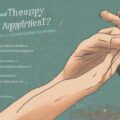As we grow older, looking back on our lives can provide comfort, meaning and connection. Reminiscence therapy leverages this natural tendency by guiding elderly patients or residents through productive life reviews.
What is Reminiscence Therapy?
Reminiscence therapy involves the discussion of past activities, events and experiences with another person or group of people. It is a predominantly social activity that encourages seniors to talk about their lives.
Sessions may involve such activities as:
- Creating a life history book
- Looking through old photos
- Listening to familiar music
- Revisiting memorable places
- Watching archive videos
The goal is to trigger memories and enable seniors to value and find meaning in their lives through friendly conversation. Rather than testing memory, it aims to support wellbeing.
Benefits of Reminiscence Therapy
For older adults, reminiscence provides an opportunity to:
- Share wisdom from life experiences
- Resolve unfinished conflicts
- Develop closer relationships
- Facilitate a coherent self-narrative
- Enhance mood and self-esteem
For care partners and family members, it enables learning more about loved ones in meaningful ways. It can aid in seeing them as full, complex individuals beyond their current cognitive or physical decline.
Using Reminiscence Therapy
Reminiscence therapy can be used in various settings with older adults:
- Long-Term Care Facilities: Facilities can designate a reminiscing area in a community space for informal use, or staff can lead group reminiscence sessions.
- Hospice Care: Reviewing life events provides opportunities for closure and spiritual reflection approaching end of life.
- Dementia Care: Even those with memory challenges usually retain very distant memories and find this activity meaningful.
- Senior Centers: Many provide spaces and programming for seniors to share memories.
It can also be used informally at home by family members or friends.
Is Reminiscence Therapy Effective?
Studies have found reminiscence therapy can:
- Reduce depression
- Decrease isolation and loneliness
- Preserve identity
- Improve wellbeing and quality of life
Especially for those with dementia, it can improve cognition, mood and communication. It empowers them to express themselves in caring interchanges. Overall, it provides enriching psychosocial benefits.
FAQ
What are common reminiscence therapy activities?
Looking at old photos or home movies, listening to familiar old music, cooking favorite recipes from the past, visiting childhood neighborhoods, sharing stories – essentially any activity that brings back old memories.
When should reminiscence therapy be avoided?
It should be avoided if the senior finds reflecting on the past to be overly upsetting rather than fulfilling. Pay attention for signs of distress.
Who leads reminiscence therapy sessions?
Sessions may be led by activities staff in residential facilities, trained therapists or counselors, hospice workers, senior center program leaders, or informally by family and friends.
Does life review have to cover an entire lifetime?
No – sessions may focus on recent years, a specific life phase like childhood, or a certain memorable event. Overall life coverage is not necessary for participants to find meaning.
Is special equipment needed?
Simple materials like old photos, music players, foods for cooking demos etc. facilitate reminiscence. No special high-tech equipment is required – the interactions are the most important element.









